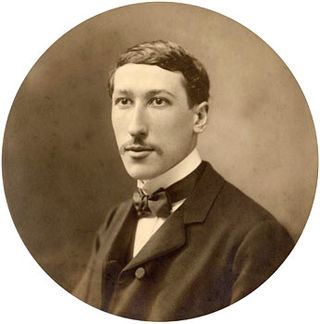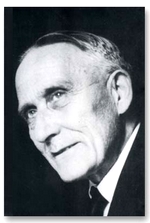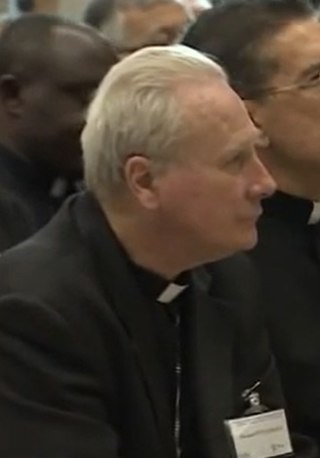Related Research Articles

René Jean-Marie-Joseph Guénon, also known as Abdalwahid Yahia, was a French intellectual who remains an influential figure in the domain of metaphysics, having written on topics ranging from esotericism, "sacred science" and "traditional studies" to symbolism and initiation.
The Dicastery for Interreligious Dialogue, previously named Pontifical Council for Interreligious Dialogue (PCID), is a dicastery of the Roman Curia, erected by Pope Paul VI on 19 May 1964 as the Secretariat for Non-Christians, and renamed by Pope John Paul II on 28 June 1988.

The Qadiriyya or the Qadiri order is a Sufi mystic order (tariqa) founded by followers of Shaiykh Syed Abdul Qadir Gilani Al-Hassani, who was a Hanbali scholar from Gilan, Iran.

Titus Burckhardt was a Swiss writer and a leading member of the Perennialist or Traditionalist School. He was the author of numerous works on metaphysics, cosmology, anthropology, esoterism, alchemy, Sufism, symbolism and sacred art.

Louis Massignon was a French Catholic scholar of Islam and a pioneer of Catholic-Muslim mutual understanding. He was an influential figure in the twentieth century with regard to the Catholic Church's relationship with Islam and played a role in Islam being accepted as an Abrahamic Faith among Catholics.

Sufi studies is a particular branch of comparative studies that uses the technical lexicon of the Islamic mystics, the Sufis, to exemplify the nature of its ideas; hence the frequent reference to Sufi Orders. It may be divided into two main branches, the orientalist/academic and the spiritual.

Michael Louis Fitzgerald is a British cardinal of the Roman Catholic Church and an expert on Christian–Muslim relations. He has had the rank of archbishop since 2002. At his retirement in 2012, he was the apostolic nuncio to Egypt and delegate to the Arab League. He headed the Pontifical Council for Interreligious Dialogue from 2002 to 2006. Pope Francis raised him to the rank of cardinal on 5 October 2019.

Ivan Aguéli, also named Shaykh ʿAbd al-Hādī al-ʿAqīlī upon his conversion to Islam, was a Swedish wandering Sufi, painter and author. As a devotee of Ibn Arabi, his metaphysics applied to the study of Islamic esotericism and its similarities with other esoteric traditions of the world. He was one of the initiators of René Guénon into Sufism and founder of the Parisian Al Akbariyya society. His art was a unique form of miniature Post-Impressionism where he used the blend of colours to create a sense of depth and distance. His unique style of art made him one of the founders of the Swedish contemporary art movement.

Ahmad al-Alawi, in full Abū al-ʿAbbās Aḥmad ibn Muṣṭafā ibn ʿAlīwa, known as al-ʿAlāwī al-Mustaghānimī, was an Algerian Sufi Sheikh who founded his own Sufi order, called the Alawiyya.
Michel Valsan was a Muslim scholar and master of a Shadhiliyya tariqah in Paris under the name Shaykh Mustafa 'Abd al-'Aziz. As well, he was a Romanian diplomat and a prolific translator who specialized in translating and interpreting the works of the Sufi theoretician Ibn Arabi.

The Isawiyya is a religious Islamic mystical brotherhood founded in Meknes, Morocco, by Sheikh al-Kamil Mohamed al-Hadi ben Issa (1465–1526), best known as the Shaykh Al-Kamil, or "Perfect Sufi Master". The terms Aissawiyya (`Isawiyya) and Aissawa (`Isawa), derive from the name of the founder, and respectively designate the brotherhood and its disciples.

The Regensburg lecture or Regensburg address was delivered on 12 September 2006 by Pope Benedict XVI at the University of Regensburg in Germany, which sparked international reactions and controversy. The lecture entitled "Faith, Reason and the University – Memories and Reflections".
During his papal tenure, Pope Benedict XVI focused on building on the outreach of his predecessors towards Islam, particularly on the efforts of Pope John Paul II, who experts say established trust and opened opportunities for dialogue with Muslims. One of the important milestones in the Pope's efforts included a religious and peaceful initiative called A Common Word. This was provoked by a 2006 lecture he delivered at a university in Regensburg, Germany, which prompted Muslim leaders to gather and make overtures to their Christian and Jewish counterparts. Later on, Pope Benedict pursued key initiatives that helped foster Christian and Muslim dialogue. These were founded on the Pope's belief that Christians and Muslims have shared religious experience and that Christianity and Islam are both theologically founded in "God's irruptive call ... heard in the midst of man's ordinary daily existence."
Jean-Louis Michon was a French traditionalist and translator who specialized in Islamic art and Sufism. He worked extensively with the United Nations to preserve the cultural heritage of Morocco.

Hamid bin Ahmad Al Rifaie is a Saudi Arabian activist and thinker, president of the International Islamic Forum for Dialogue , and co-president of the World Muslim Congress.

Ahmed Mohamed Ahmed El-Tayeb is an Egyptian Islamic scholar and the current Grand Imam of al-Azhar, al-Azhar al-Sharif and former president of al-Azhar University. He was appointed by the Egyptian President, Hosni Mubarak, following the death of Mohamed Sayed Tantawy in 2010. He is from Kurna, Luxor Governorate in Upper Egypt, and he belongs to a Sunni Muslim family.

Holy See – United Arab Emirates relations are the foreign relations between the Holy See and the United Arab Emirates (UAE). The earliest form of contact between officials of both states was when the founder of the UAE, Sheikh Zayed bin Sultan Al Nahyan, unofficially met Pope John Paul II in the 1980s. Relations between the two were not established until 31 May 2007. According to a Vatican communiqué, the diplomatic arrangement was founded on a desire to promote “bonds of mutual friendship and of strengthening international cooperation.

Akbari Sufism or Akbarism is a branch of Sufi metaphysics based on the teachings of Ibn Arabi, an Andalusian Sufi who was a gnostic and philosopher. The word is derived from Ibn Arabi's nickname, "Shaykh al-Akbar," meaning "the greatest master." 'Akbariyya' or 'Akbaris' have never been used to indicate a specific Sufi group or society. It is now used to refer to all historical or contemporary Sufi metaphysicians and Sufis influenced by Ibn Arabi's doctrine of Wahdat al-Wujud. It is not to be confused with Al Akbariyya, a secret Sufi society founded by Swedish Sufi 'Abdu l-Hadi Aguéli.
Western Sufism, sometimes identified with Universal Sufism, Neo-Sufism, and Global Sufism, consists of a spectrum of Western European and North American manifestations and adaptations of Sufism, the mystical dimension of Islam. Many practitioners of Western Sufism follow the legacy of Inayat Khan and may identify with a variety of Sufi traditions, some of which have evolved to be pluralistic and not exclusively Islamic. In addition to Western Sufism, traditional Sufism also exists in the West, although it is significantly less prevalent among Muslims in the West than Sufism in the Muslim world. Most Sufi organizations in the West outside of the Balkans are Western Sufi.
The Italian Islamic Religious Community is one of the three main Italian Sunni Islamic organisations in Italy, along with the Union of Islamic Communities and Organisations in Italy and the Italian Islamic Confederation.
References
- ↑ Hanan Ben Rhouma, «Abd al-Wahid Pallavicini, figure de l'islam et du dialogue interreligieux en Italie, est mort», in Saphirnews, 16 November 2017
- ↑ « Décès du cheikh Abd al Wahid Pallavicini, figure italienne du dialogue interreligieux » in La Croix, 22 November 2017
- ↑ Ulrike Putz, « The Unorthodox Sheikh of Milan », in Haaretz.com, 26 January 2003
- ↑ Sandro Magister, « Cinq musulmans au Vatican, pour préparer l'audience avec le pape », in Repubblica.it, 6 February 2008